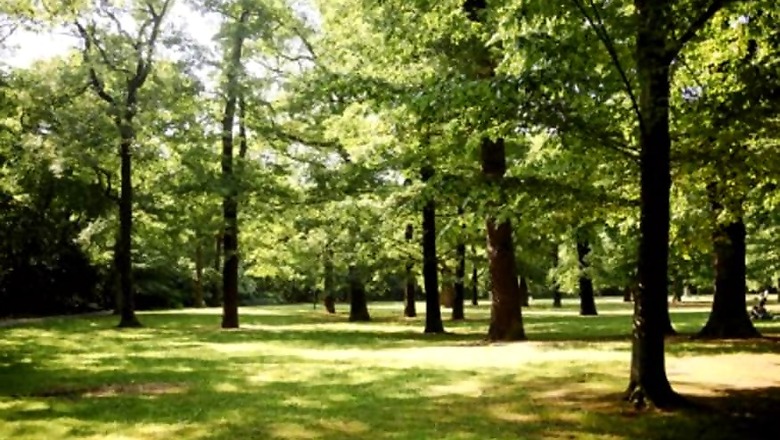
views
New US research suggests that those who use their local parks and participate in recreation programs are more likely to report higher levels of health than those who don't.
Carried out by researchers from Penn State University and commissioned by the National Recreation and Park Association, the team collected data in 1991 and 2015 which looked at Americans' use and perceptions of local parks and recreation services.
The researchers used telephone surveys to assess participants' use of their local parks, participation in organized recreation programs, and self-rated health, surveying 1,305 individuals in 1991 and 1,144 in 2015.
Although previous research has already looked at relationships between parks and physical activity, the study's authors claim it is the first on a national level in the US to look at whether the relationship between local park use, participation in recreation programs, and self-rated health has strengthened over time in line with national efforts to promote healthier living.
Although the team didn't find a significant association between park use or program participation and self-rated health in 1991, the results of the 2015 survey showed that those who frequently use their local parks or recreation programs were more likely to self-report high levels of health through the SF-1 -- a measure of self-rated health frequently used by health organizations -- than non-frequent park users.
Co-author Dr. Christopher Sciamanna said, "It was exciting to see a relationship with self-reported health, as this single question is strongly associated with risk of hospitalization and death and is used nationally by the Robert Wood Johnson Foundation to monitor the nation's health in its CountyHealthRankings.org online resource."
The team believe that the growing relationship between use of parks and recreation programs and self-rated health between 1991 and 2015 is likely the result of broad national health promotion efforts across the USA, with lead author Nicholas Pitas commenting that, "Based on this information, parks and recreational services should be considered a key part of America's health care system, as the connection of these services to health is becoming more evident over time. This study supports the importance of locally offered recreation services, and argues in favor of investing in local park facilities and recreation programming."
Many previous studies have also shown how access to nature and green spaces can benefit health, with a large-scale UK study finding that those who live in areas that are rated scenic report feeling healthier than those who live in less scenic areas.
A 2015 study of US adults also found that men in particular and those age 65 and above sleep better when they have access to nature, possibly because of an association between living in close proximity to green spaces and increased levels of physical activity, a factor in promoting healthy sleep.
Research also suggests that natural terrain playgrounds which incorporate trees and grass as well as manmade structures help relieve stress in children, and that high school students who see green space at school achieve better exam results than those who have a more built-up view. One study also suggested that living near high levels of greenery could reduce levels of aggression in teenagers.
The results can be found online in Preventing Chronic Disease, the US Centers for Disease Control and Prevention's peer-reviewed journal.




















Comments
0 comment